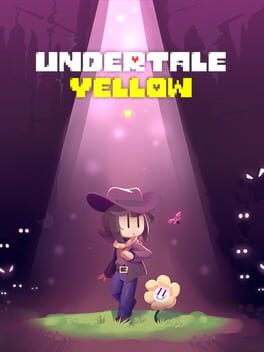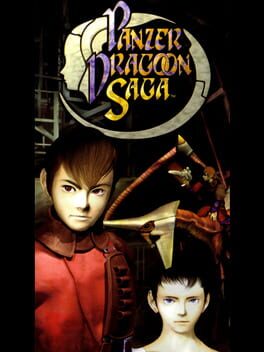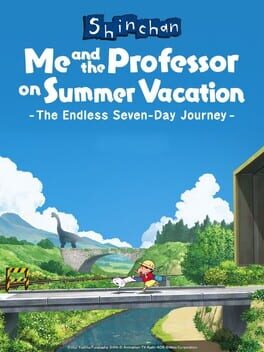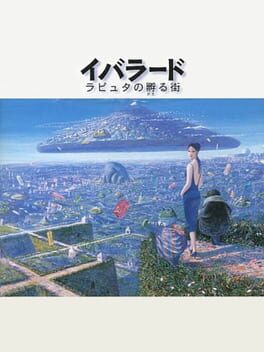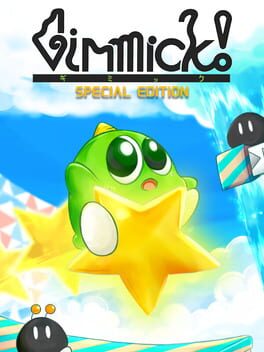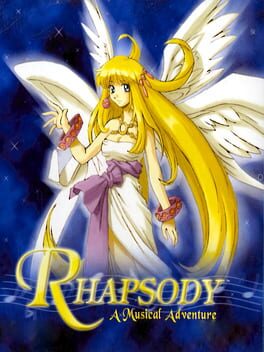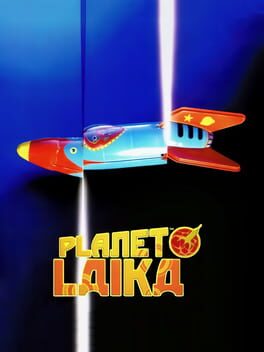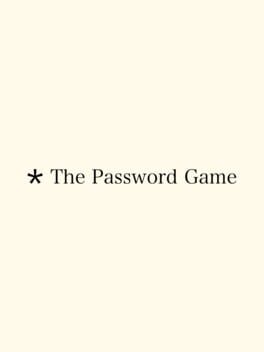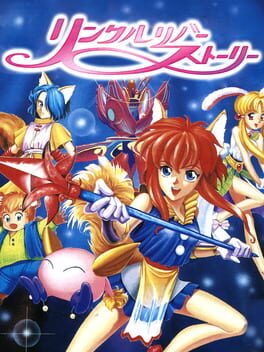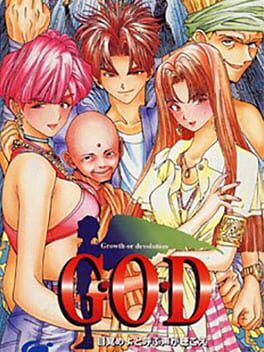Funbil
2023
1999
A kitten lives in a cardboard box next to the shrine in Yamanose. One night, a speeding car takes the life of its mother. As quiet snow comes gingerly down from the sky to hug the fading warmth of the mother’s body, the kitten cries. These cries score the night’s wallowing blackness to an audience of one; a young schoolgirl. That schoolgirl brings the kitten to the shrine in Yamanose and houses it in a cardboard box. It stays in this box every hour of every day, calling out to any footsteps that happen to pass by. Whose footsteps they are does not matter; the kitten is cold, it’s hungry, and most importantly it’s lonely in a way it has never known before. To the kitten, any company is better than no company.
A young man lives in a house next to the shrine in Yamanose. One night, a cartel assassin takes the life of his father. As quiet snow comes gingerly down from the sky, pressing gently against the windows of the dojo where the young man holds his father’s body, the young man makes a wordless promise to himself. He spends every hour of every day chasing that promise through the streets and buildings of many places. The young man consults strangers and acquaintances alike for countless favors; who the favors come from does not matter, just that it brings him closer to his goal. Though just as quick as the young man approaches others for favors, he’s similarly quick to leave them, if not quicker. To the young man, company would only get in the way.
The schoolgirl’s classmates and friends all come every day to the cardboard box next to the shrine in Yamanose. They take turns caring for the kitten and making sure she is warm, fed, and loved. Before too long, the kitten recovers enough both physically and emotionally to start walking around outside of the box. The children provide for the kitten all the love and the care a mother would have given multiple times over. That’s what the kitten needs, so that’s what they do.
The young man’s caretakers, his best friends, and the girl who loves him constantly attempt to be a part of his life. They ask how he’s doing, where he’s been, what he’s been up to - the young man insists on being left alone. Before too long, they grow concerned and start wondering why he’s been staying out so late, if he’s doing anything dangerous, offering help if he needs it - again, the young man insists on being left alone. After enough insisting, the young man’s caretakers, his best friends, and the girl who loves him decide to start keeping their distance. That’s what the young man needs, so that’s what they do.
One day, the cardboard box vanishes from the shrine in Yamanose, and the kitten is nowhere to be found. Thanks to the kindness and the love of the schoolgirl and her friends, the kitten is fully recovered and ready to take on the world by herself. There is no doubt in my mind that the kitten will live a full and happy life. I have no worries about the kitten at all. The young man, however… I worry deeply about that young man.
A young man lives in a house next to the shrine in Yamanose. One night, a cartel assassin takes the life of his father. As quiet snow comes gingerly down from the sky, pressing gently against the windows of the dojo where the young man holds his father’s body, the young man makes a wordless promise to himself. He spends every hour of every day chasing that promise through the streets and buildings of many places. The young man consults strangers and acquaintances alike for countless favors; who the favors come from does not matter, just that it brings him closer to his goal. Though just as quick as the young man approaches others for favors, he’s similarly quick to leave them, if not quicker. To the young man, company would only get in the way.
The schoolgirl’s classmates and friends all come every day to the cardboard box next to the shrine in Yamanose. They take turns caring for the kitten and making sure she is warm, fed, and loved. Before too long, the kitten recovers enough both physically and emotionally to start walking around outside of the box. The children provide for the kitten all the love and the care a mother would have given multiple times over. That’s what the kitten needs, so that’s what they do.
The young man’s caretakers, his best friends, and the girl who loves him constantly attempt to be a part of his life. They ask how he’s doing, where he’s been, what he’s been up to - the young man insists on being left alone. Before too long, they grow concerned and start wondering why he’s been staying out so late, if he’s doing anything dangerous, offering help if he needs it - again, the young man insists on being left alone. After enough insisting, the young man’s caretakers, his best friends, and the girl who loves him decide to start keeping their distance. That’s what the young man needs, so that’s what they do.
One day, the cardboard box vanishes from the shrine in Yamanose, and the kitten is nowhere to be found. Thanks to the kindness and the love of the schoolgirl and her friends, the kitten is fully recovered and ready to take on the world by herself. There is no doubt in my mind that the kitten will live a full and happy life. I have no worries about the kitten at all. The young man, however… I worry deeply about that young man.
1998
World-renowned auteurs have spent their entire careers trying to re-capture even just a fraction of what it wields so confidently, finding a full foundation on which to build their own legacies from even just small pebbles chipped off of its memory.
There has never been anything else quite like it. There will never be anything else quite like it.
It is exactly what it wants to be. It is exactly what it needs to be.
It is a towering monument to both what humanity is and what humanity is capable of.
It is Panzer Dragoon Saga.
There has never been anything else quite like it. There will never be anything else quite like it.
It is exactly what it wants to be. It is exactly what it needs to be.
It is a towering monument to both what humanity is and what humanity is capable of.
It is Panzer Dragoon Saga.
Boku no Natsuyasumi is a summer vacation; Shin-chan is a video game that is set during a summer vacation.
The gentle, understated daily morning exercises of Bokunatsu are pantomimed in Shin-chan with throaty yells and militaristic marching music. Nobody dares to speak a single authentic word with each other lest it gets in the way of whatever tired, juvenile joke Shin-chan is about to sucker them into. The player is constantly corralled down a main path so the game can continue expositing this narrative about a mad scientist and his dinosaurs, which regularly (and fatally) pierces through whatever atmosphere the game may have had with their garish clown music and exaggerated bombast.
Experiences are objectified as Things to Collect so that they may be included in the local newspaper and gain subscriptions. The wildlife is objectified as Things to Collect so that they may be traded in for money with the local shop owners. The money must be collected so food can be bought to satiate Shin-chan’s stamina meter; if it empties, Shin-chan faints due to hunger and is sent back to the house his family is staying at. This stamina meter turns even something as fundamental as walking into a number to manage. Everything is a datapoint. This is not a vacation. This is taking the beauty and joy and the little quirks of living and twisting it into a loveless economy.
Sometimes, in the quiet gasps for air between micromanaging a preschooler’s summer vacation and the squealing displays of Saturday-morning-cartoon-ish storytelling, whispers of Millennium Kitchen’s legacy can be felt in the breeze. Sometimes walking lazily through beautifully rendered backgrounds with considerately composed perspectives feels just as comfortable and familiar as it’s supposed to. This lasts until the mistake is made of interacting with the game at all by catching a bug or a fish or picking up an item, to which Shin-chan will once again holler out his raucous yawps, and being shown the name of that collectible inevitably calls to mind: “The girl who runs the grocery store will pay me 100 yen for six of these.”
Maybe someday Millennium Kitchen will have the opportunity to localize one of their games that doesn’t feel the need to obsessively gamify itself or “subvert” whatever honest sentiments they’ve drawn upon for the mainline Boku no Natsuyasumi titles. I also wonder how much of this obnoxiousness comes from the fact that they’re working with the Shin-chan intellectual property in particular. Attack of the Friday Monsters, their previous game, had similar problems in tone but at least wasn’t nearly so vapid. Maybe this is what they think Western audiences want. Looking at current review scores around the internet, maybe they’re right. Personally, I’d prefer a summer vacation over a video game set during one.
The gentle, understated daily morning exercises of Bokunatsu are pantomimed in Shin-chan with throaty yells and militaristic marching music. Nobody dares to speak a single authentic word with each other lest it gets in the way of whatever tired, juvenile joke Shin-chan is about to sucker them into. The player is constantly corralled down a main path so the game can continue expositing this narrative about a mad scientist and his dinosaurs, which regularly (and fatally) pierces through whatever atmosphere the game may have had with their garish clown music and exaggerated bombast.
Experiences are objectified as Things to Collect so that they may be included in the local newspaper and gain subscriptions. The wildlife is objectified as Things to Collect so that they may be traded in for money with the local shop owners. The money must be collected so food can be bought to satiate Shin-chan’s stamina meter; if it empties, Shin-chan faints due to hunger and is sent back to the house his family is staying at. This stamina meter turns even something as fundamental as walking into a number to manage. Everything is a datapoint. This is not a vacation. This is taking the beauty and joy and the little quirks of living and twisting it into a loveless economy.
Sometimes, in the quiet gasps for air between micromanaging a preschooler’s summer vacation and the squealing displays of Saturday-morning-cartoon-ish storytelling, whispers of Millennium Kitchen’s legacy can be felt in the breeze. Sometimes walking lazily through beautifully rendered backgrounds with considerately composed perspectives feels just as comfortable and familiar as it’s supposed to. This lasts until the mistake is made of interacting with the game at all by catching a bug or a fish or picking up an item, to which Shin-chan will once again holler out his raucous yawps, and being shown the name of that collectible inevitably calls to mind: “The girl who runs the grocery store will pay me 100 yen for six of these.”
Maybe someday Millennium Kitchen will have the opportunity to localize one of their games that doesn’t feel the need to obsessively gamify itself or “subvert” whatever honest sentiments they’ve drawn upon for the mainline Boku no Natsuyasumi titles. I also wonder how much of this obnoxiousness comes from the fact that they’re working with the Shin-chan intellectual property in particular. Attack of the Friday Monsters, their previous game, had similar problems in tone but at least wasn’t nearly so vapid. Maybe this is what they think Western audiences want. Looking at current review scores around the internet, maybe they’re right. Personally, I’d prefer a summer vacation over a video game set during one.
Video gamists have a nasty habit of forcing intensely literal parameters on works that present themselves in vague or abstract ways. In my experience with these kinds of people, it comes from a place of truly and authentically appreciating the work, but not having the imagination to accept that art can serve something other than a comprehensive series of tangible events. I always presumed this was largely on the fault of video game players, but this adaptation of Inoue's paintings proves that developers can be just as bereft of imagination as well. What a shame.
2022
2017
There was a time in my life when I touted this as one of my top 5 favorite games of all time. My reasoning was this: yeah, the combat kinda sucks, all the characters are totally flat, the character designs are shameless in a way that isn't cool, but the music is incredible and it made me think about some really fascinating stuff. It never really develops on those ideas in the game itself but I like what it makes me think about removed from the playing experience.
Nearly three years later, the effect of this game is wearing off, I've played more games and lived through more experiences, and I'm realizing: oh, that's actually, uh, not that great!
Nearly three years later, the effect of this game is wearing off, I've played more games and lived through more experiences, and I'm realizing: oh, that's actually, uh, not that great!
God this game rules. Though for a re-release of such an old game (god this game rules) I'd expect a little more effort. The illustrations (god this game rules) that can be used as borders are really cute (god this game rules) but that's not worth the $15 price tag. The only other features it offers is save states and rewind, which are staples of any off-the-shelf emulator. There's also an online leader board, but the score has never really been the point of Gimmick to me (god this game rules). I love this game (god this game rules), but it's hard to justify its price when, for example, the M2 ports of classic SEGA games (god those games rule) are regularly about $2, or Hamster's Arcade Archives (god those games rule) top out at $8. Putting up a straight ROM onto a store front and asking for $15 with next-to-no justification for that price is a hard sell when comparing to anyone doing anything similar, but it is Gimmick (god this game rules) and Gimmick rules (god this game rules). God this game rules.
Functionally, this is a failure of a video game; all the ways a player interfaces with the game are either sloppily opaque, mind-numbingly dull, or both. Mandatory character interactions are frequently tucked away in completely innocuous NPC dialogue, with no indication that any new part of the game has become accessible after talking with them. Combat encounters borrow the positional grid-based systems of LIVE A LIVE or Popolocrois Monogatari, yet any instances of this feature affecting battle strategies are both exceedingly rare and exceedingly shallow. It understands that Pokémon is the hot new exciting game everyone wants to be, but it doesn’t realize we’re well past the inconsequential random monster recruitment of Dragon Quest V. Every dungeon in the game is built using exactly two visual backdrops that get lazily color-swapped with no other visual or thematic variations, and the dungeon designs are never any deeper than a single intended progression path with frivolous branching dead-ends. Strikingly few sections of this game can be intuitively navigated without the guiding hand of a walkthrough. None of the issues in this game ever amount to any kind of mechanical payoff or purpose; the game is simply not constructed well. Though with all this being the case, anybody who critically engages with art has to reconcile with one question sooner or later: at what point does heart surmount technical ineptitude?
The truth is that despite all its damning flaws, I came away from Rhapsody: A Musical Adventure absolutely enamored with it. This game ascends far beyond the threshold where passion overtakes convention, proving that even a blatantly terrible video game can still claw its way into being a masterpiece when it’s so overflowing with love. The sporadic musical numbers sung by noticeably non-professional singers constantly put a huge smile on my face – and not an ironic, sneering smile either, a genuine one! The earnestness of untrained singing voices lent the songs a sincerity that only further drew out the beauty of the music. Similarly, the simplicity and innocence of Rhapsody’s narrative is exactly what allows it to be so effective. The central themes of the story are a little loose and tend to get confused with each other, but there were still several story beats that managed to pool emotions in my eyes – when other story beats didn’t have me audibly laughing out loud, of course. This game’s got a magical tone that knows exactly what it wants to be exactly when it wants to be them, and it pulls them off excellently. Wrap it all up with some of the softest, cutest, warmest character designs and environments the Playstation can render and the result is a game that begs to be loved with just as much love as it has to give… And I do! I love this game. How could I not?
Rhapsody: A Musical Adventure is constructed horribly but crafted magnificently, and in the end that heart is what matters most above anything else. How beautiful for a game like this to exist.
The truth is that despite all its damning flaws, I came away from Rhapsody: A Musical Adventure absolutely enamored with it. This game ascends far beyond the threshold where passion overtakes convention, proving that even a blatantly terrible video game can still claw its way into being a masterpiece when it’s so overflowing with love. The sporadic musical numbers sung by noticeably non-professional singers constantly put a huge smile on my face – and not an ironic, sneering smile either, a genuine one! The earnestness of untrained singing voices lent the songs a sincerity that only further drew out the beauty of the music. Similarly, the simplicity and innocence of Rhapsody’s narrative is exactly what allows it to be so effective. The central themes of the story are a little loose and tend to get confused with each other, but there were still several story beats that managed to pool emotions in my eyes – when other story beats didn’t have me audibly laughing out loud, of course. This game’s got a magical tone that knows exactly what it wants to be exactly when it wants to be them, and it pulls them off excellently. Wrap it all up with some of the softest, cutest, warmest character designs and environments the Playstation can render and the result is a game that begs to be loved with just as much love as it has to give… And I do! I love this game. How could I not?
Rhapsody: A Musical Adventure is constructed horribly but crafted magnificently, and in the end that heart is what matters most above anything else. How beautiful for a game like this to exist.
1999
2019
This is an incredibly written game – and I mostly mean in quantity rather than quality. Not that the writing is bad even a little bit, it's just So Written. At times it seemed a little too impressed with itself, a little too proud of just how much it had written and just how thoroughly it had considered everything about its world. The deluge of these instances made it difficult for me to resonate with the more rare moments that were clearly supposed to be emotionally impactful. Heaps and piles of world-building featuring places we'll never see and people we'll never know. Does it set the scene? Yes – does it establish the game's bleak tone? Yes – but it is constant and it is incredibly dry. Sometimes I'd go a full hour or so without encountering any moments like this, and suddenly getting caught in the current of yet more world-building would make me realize how much I was enjoying all the dialogue and narration up to this point (by contrast of how much I wasn't enjoying myself anymore). And this was with the full-game voice acting off, I can't imagine playing the whole game with it on. I kept voices on the "Classic" setting, and sometimes even that proved to be too much. The voice actors are great but their performances are absolutely not (save for Kim, of course). I found myself speeding through text faster than normal when they appeared so they would stop sooner. Which is a shame, because the tone and quality of their voices are great reference points to understand their characters better, but unnatural emphases and inflections regularly distracted from the meaning of the sentences rather than adding to it. Disco Elysium is an incredibly smart game but failed to make me feel much of anything, and I'm not afraid to say I value one of those things a lot more than the other.
2023
1996
I’m going to list a few traits below and I’d like you to guess what game I’m referring to:
- Top-down Zelda-inspired combat with absurdly small hit detection
- Charge attack that sends a boomerang-like projectile forward
- Moveset consisting of jumps and a dash that utilizes momentum-based drifting
- Floating companion creature whose abilities change depending on equipment preferences
- Linear adventure areas connected via an overworld map
- Villages with talking animals
- Using apples to refill health
- Surprisingly convoluted story about the origin of life
- Complete disregard for any sense of mechanical or narrative pacing
- Can be easily completed in a few short play sessions
- Ends with a beautiful calligraphy “FIN”
It might seem like I’m describing Linkle Liver Story. That’s because I am! But I’m also describing Nextech’s previous game released only a short two years prior: Crusader of Centy. It’s almost comical how perfectly identical these two games are.
Since it’s impossible to divorce Linkle Liver Story from the shadow of Crusader of Centy, I also regret to report that Crusader of Centy nearly does everything better. Crusader of Centy’s narrative focus on prejudice and miscommunication feels a lot more inspired and poignant than Linkle Liver Story’s musings about the impermanence of naturalistic life. I’ll give Linkle Liver Story that its protagonist’s controls feel more polished and refined, though its enemies are significantly more annoying and its weapon-growing system does not offer nearly as many strategic or personalization opportunities as it seems to hope it does.
Of course, this is all neglecting one crucial detail: in Linkle Liver Story, you can Naruto run as a foxgirl. So maybe it’s better than Crusader of Centy after all
- Top-down Zelda-inspired combat with absurdly small hit detection
- Charge attack that sends a boomerang-like projectile forward
- Moveset consisting of jumps and a dash that utilizes momentum-based drifting
- Floating companion creature whose abilities change depending on equipment preferences
- Linear adventure areas connected via an overworld map
- Villages with talking animals
- Using apples to refill health
- Surprisingly convoluted story about the origin of life
- Complete disregard for any sense of mechanical or narrative pacing
- Can be easily completed in a few short play sessions
- Ends with a beautiful calligraphy “FIN”
It might seem like I’m describing Linkle Liver Story. That’s because I am! But I’m also describing Nextech’s previous game released only a short two years prior: Crusader of Centy. It’s almost comical how perfectly identical these two games are.
Since it’s impossible to divorce Linkle Liver Story from the shadow of Crusader of Centy, I also regret to report that Crusader of Centy nearly does everything better. Crusader of Centy’s narrative focus on prejudice and miscommunication feels a lot more inspired and poignant than Linkle Liver Story’s musings about the impermanence of naturalistic life. I’ll give Linkle Liver Story that its protagonist’s controls feel more polished and refined, though its enemies are significantly more annoying and its weapon-growing system does not offer nearly as many strategic or personalization opportunities as it seems to hope it does.
Of course, this is all neglecting one crucial detail: in Linkle Liver Story, you can Naruto run as a foxgirl. So maybe it’s better than Crusader of Centy after all
A globe-trotting adventure set in modern times featuring a nondescript boy, a blonde guy with guns, a pink girl (x2), and a martial artist monk, all of whom boast psychic abilities and team up to defend Earth from invading aliens… Released only two years after MOTHER 2 (and just a few months after it came West as EarthBound), this is surely the first MOTHER fangame in history. Though where EarthBound leans absurdist, G.O.D. examines the consequences of that absurdity hyper-literally. The alien invasion witnessed at the top of a hometown mountain is not a mystical start to a fairytale, but a grizzly armageddon that immediately wipes out the significant majority of human civilization. Aliens with goofy, surreal designs approximating real-world creatures are met with justified confusion and terror. Firearm-bearing militiamen attempt to take back the world from these invading forces through a decade of war – a fight they’re nearly on the brink of losing. Even something as unassuming as staying at a typically RPG-styled inn has a mature, lasting ramification on the narrative. That’s not to say it handles all of this particularly well (unfortunately, the aforementioned globe-trotting nature of this adventure leads to repulsively frequent cultural stereotypes and racism), but to see G.O.D. actually applying these ideas of “What if EarthBound was like, realistic, dude,” before a South Park-loving American preteen could even get their hands on a cartridge at all is historically fascinating. MOTHER fangames – or even just indie games in general – have grown similar thesis statements, and yet I’d struggle to say many are as successful as this was (barring the racism, of course… if that even needs to be said). Hell, G.O.D. even beat Yoko Taro to some of his most famous narrative punches by 15 years – note for note, the exact twists that NieR would go on to accrue so many accolades for can be found in almost identical form here. To play G.O.D. is to see a shockingly forward-thinking condensation of borrowed ideas that would unknowingly predict the cultural zeitgeist decades into the future with crystalline accuracy. I just wish it, uh, wasn’t so racist!!
P.S. ~ Batty is the funniest character in any MOTHER-inspired video game
P.S. ~ Batty is the funniest character in any MOTHER-inspired video game
